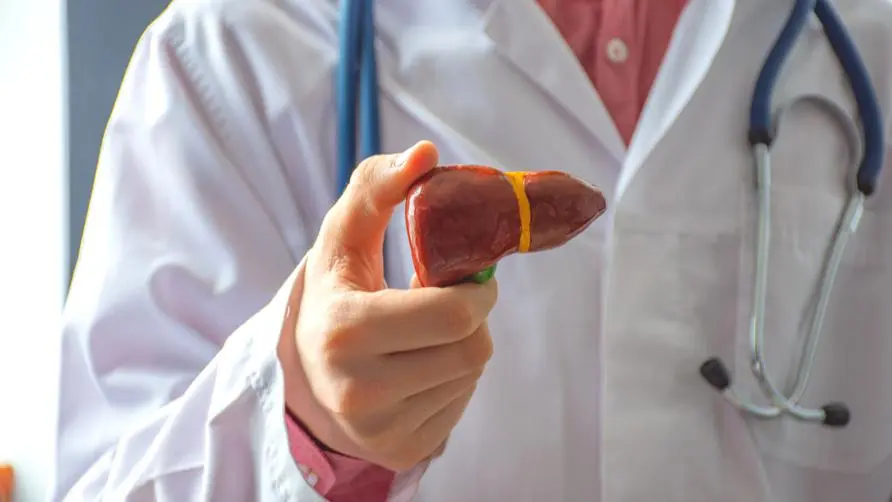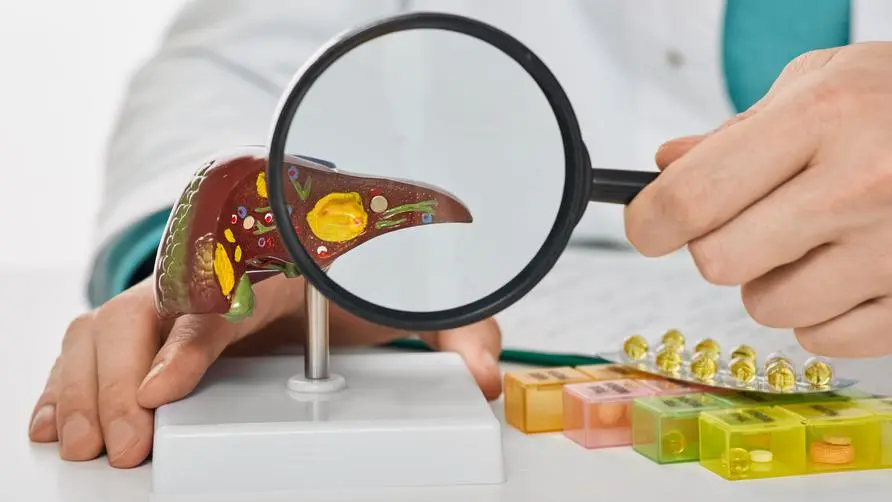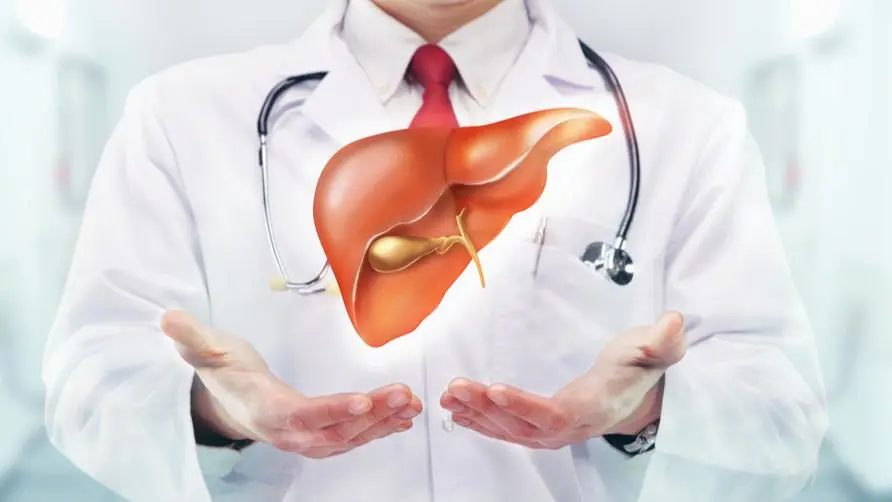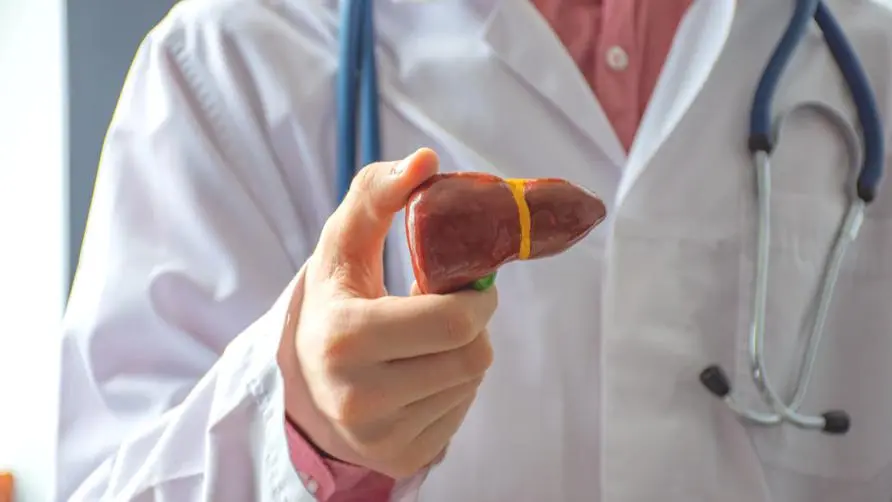The risk of hepatitis B converting to cancer is as high as 40%! Born before "this year" is the most dangerous: 15 people die from liver cancer every day

She only knows how to take care of herself but doesn’t know how to track her. After taking blood, her “liver index” skyrocketed by more than 20 times.
Cancer is often on the list of “Top Ten Causes of Death” among Taiwanese people, and people often become disgruntled when hearing about cancer; among them, “liver cancer” is the second leading cause of cancer death in Taiwan. Taiwan Ministry of Health and Welfare, Health Promotion Administration statistics show that the main cause of chronic liver disease, cirrhosis and liver cancer is hepatitis B/C. If hepatitis B carriers have persistent hepatitis attacks, 15-20% will develop cirrhosis. . If people “only know how to take care of their health, but don’t know how to track it,” they may miss the best opportunity for treatment.
Professor Lai Jiming, CEO of the Taiwan Cancer Foundation, said that a mother, Chen, has been living with hepatitis B for many years and has been replacing “liver nourishment” with daily health food and tracking. I accidentally went to the clinic for a blood test and found that my liver index had soared to 20 times the normal value, so I quickly received medication.
Unfortunately, the virus had already caused damage to Mrs. Chen’s liver during the treatment period that had not been tracked previously. After more than three years of follow-up and treatment, Mrs. Chen was diagnosed with early-stage liver cancer during an ultrasound examination. Fortunately, the lung cancer was detected early, and her son, who was born before 1986, also had hepatitis B vaccine, accompanied and encouraged her. Mother and son were treated and tracked together, and they were determined to fight the liver disease.
People born before 1986 should pay attention! Hepatitis B “vaccine gap” causes 15 liver cancer deaths every day
Professor Lai Jiming said that since Taiwan introduced comprehensive vaccination of newborns with hepatitis B vaccine in 1986, the hepatitis B carrier rate in the “vaccine generation” has continued to decrease to 0.5%, but liver cancer still ranks as the second leading cause of cancer death in Taiwan. According to the Taiwan Health Promotion Administration 2019 Cancer Report, there are about 11,000 new cases diagnosed every year, of which about 8,000 people unfortunately lose their lives. About 7 of the patients who die from liver cancer are hepatitis B carriers. Based on this calculation, about 15 people die from liver cancer every day due to hepatitis B.
Vaccination and antiviral treatment are both effective methods to prevent and treat hepatitis B-related liver cancer. However, in the “vaccine gap generation” before the launch of the hepatitis B vaccine policy, there are still an estimated 1.9 million hepatitis B carriers aged over 37. Among them, many people missed the opportunity for treatment because they did not continue to follow up, and entered the “liver cancer trilogy” of “hepatitis, cirrhosis, and liver cancer”.
Dr. Xu Yaojun, director of the Liver Disease Center of E-Da Hospital, pointed out that the E-Da research team analyzed 1,017 hepatitis B patients with liver cancer and found that up to 75% (762 patients) had not received treatment for hepatitis B before developing cancer; further analysis found that these patients had not received treatment for hepatitis B before developing cancer. Patients treated for hepatitis B had significantly lower rates of outpatient visits, specialist consultations, liver index tests, or abdominal ultrasound examinations, indicating the consequences of neglect of tracking. In addition, 71% (181 patients) of 255 patients who had received treatment for hepatitis B before diagnosis of liver cancer had cirrhosis, which meant that although treatment was available, it was too late.
To avoid the progression of the disease, form the “Trilogy of Liver Cancer”! Hepatitis B patients should remember 3 things B needs to know
In order to remind the generation of hepatitis B vaccine failure and to keep the public away from the threat of hepatitis B cancer, the Taiwan Cancer Foundation invited the well-known former women’s basketball national player Qian Weijuan to serve as a health education ambassador to remind the public to grasp the three “B” needs so that hepatitis B will not worry:
Know: Know whether you or your family members are hepatitis B carriers or infected, and seek further medical assistance after diagnosis.
Tracking: Don’t misunderstand the statement of “healthy hepatitis B carriers”. If you are confirmed to be a hepatitis B carrier, follow up regularly to understand the liver index ALT, fetal protein, abdominal ultrasound, liver fibrosis degree, virus load, etc. The need for treatment can then be further assessed.
Need treatment: Encourage patients to take the initiative to discuss with doctors and decide on a treatment plan together; currently, some patients can receive health insurance support for their treatment. Take active control of your own health to avoid becoming a candidate for liver cancer.
Qian Weijuan said that she is also a member of the hepatitis B vaccine generation. She knew she was a hepatitis B carrier due to routine examinations on the team since she was a child. Under medical education, she learned that hepatitis B is the biggest cause of liver cancer, and has long maintained abdominal ultrasound and hepatitis B-related examinations every six months to reduce the risk of disease worsening or even cancer. She believes that only by taking control of her own health can she continue to pursue her career. Love sport.
The risk of hepatitis B progressing to liver cancer is as high as 40%. Experts advise: carriers should track their condition regularly
It is worth noting that in the past, it was believed that patients with hepatitis B did not need treatment if they had not reached the level of cirrhosis, had only slightly abnormal liver inflammation index, or had no physical symptoms. However, Director Xu Yaojun said that more and more evidence shows that the process of hepatocyte cancer caused by hepatitis B virus may have begun in the early stages of chronic infection! “Because viral DNA will fuse into human DNA, it will destroy the stability of the patient’s genes and lead to direct carcinogenesis.”
Director Xu Yaojun further pointed out that the greater the amount of hepatitis B virus, the higher the risk of developing liver cancer. For hepatitis B carriers, if there is no continuous follow-up and interventional treatment at the appropriate time, the lifelong risk of chronic hepatitis B patients progressing to cirrhosis or liver cancer is 25-40%. Therefore, if there is a need for treatment, it should be started as soon as possible to avoid being like Mrs. Chen who “knows how to take care of but doesn’t know how to follow up.” The subsequent damage caused may be difficult to reverse.
Finally, Director of the National Health Service Wu Zhaojun reminded that starting from 2020, the Taiwan Health Promotion Administration has relaxed the screening for hepatitis B and C, subsidizing people aged 45 to 79 to be screened once in their lifetime. Currently, more than one million people have been screened. Among which the positive rate of hepatitis B is about 12%. Taiwanese are reminded to make good use of the preventive health care services provided by the government to avoid the progression to chronic liver disease and cirrhosis and reduce the risk of cancer through early detection and provision of appropriate treatment.
Further reading:





